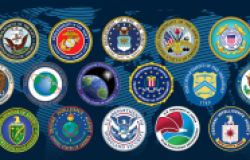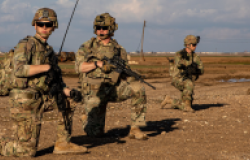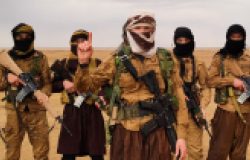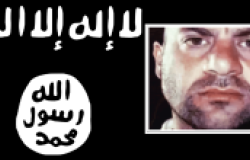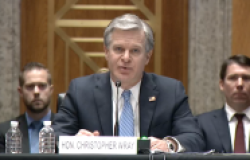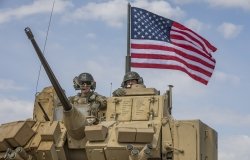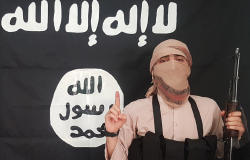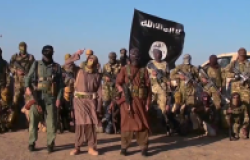Kerry, Carter on US Strategy Against ISIS
On March 11, Secretary of State John Kerry and Secretary of Defense Ash Carter discussed U.S. strategy against ISIS before the Senate Committee on Foreign Relations
On March 11, Secretary of State John Kerry and Secretary of Defense Ash Carter urged the Senate Committee on Foreign Relations to supportPresident Obama's proposed authorization to use military force (AUMF) against ISIS. Carter emphasized that the proposal allows enough flexibility to effectively combat the group. The following is an excerpt of their remarks.
In our democracy, there are many views about the challenges and the opportunities that we face, and that’s appropriate. That’s who we are. But I hope we believe that there is an overwhelming consensus that Daesh has to be stopped. Our nation is strongest, always has been, when we act together. There’s a great tradition in this country of foreign policy having a special place, that politics ends at the water’s edge, and that we will act on behalf of our nation without regard to party and ideology. We simply cannot allow this collection of murderers and thugs to achieve in their group their ambition, which includes, by the way, most likely the death or submission of all those who oppose it, the seizure of land, the theft of resources, the incitement of terrorism across the globe, the killing and attacking of people simply for what they believe or for who they are.
And the joint resolution that is proposed by the President provides the means for America and its representatives to speak with a single powerful voice at this pivotal hour.
ISIL’s momentum has been diminished, Mr. Chairman. It’s still picking up supporters in places. Obviously, we’ve all observed that. But in the places where we have focused and where we are asking you to focus at this moment in time, it is clear that even while savage attacks continue, there is the beginning of a process to cut off their supply lines, to take out their leaders, to cut off their finances, to reduce the foreign fighters, to counter the messaging that has brought some of those fighters to this effort. But to ensure its defeat, we have to persist until we prevail in the broad-based campaign along multiple lines of effort that have been laid out over the course of the last months.
The President already has statutory authority to act against ISIL, but a clear and formal expression of this Congress’s backing at this moment in time would dispel doubt that might exist anywhere that Americans are united in this effort. Approval of this resolution would encourage our friends and our partners in the Middle East, it would further energize the members and prospective members of the global coalition that we have assembled to oppose Daesh, and it would constitute a richly deserved vote of confidence in the men and women of our armed forces who are on the front lines prosecuting this effort on our behalf.
Your unity would also send an unmistakable message to the leaders of Daesh. They have to understand they can’t divide us. Don’t let them. They cannot intimidate us. And they have no hope of defeating us. The resolution that we have proposed would give the President a clear mandate to prosecute the armed component of this conflict against Daesh and associated persons or forces, which we believe is carefully delineated and defined. And while the proposal contains certain limitations that are appropriate in light of the nature of this mission, it provides the flexibility that the President needs to direct a successful military campaign. And that’s why the Administration did propose a limitation on the use of “enduring offensive ground combat operations.” I might add that was after the committee – then-committee chair Senator Menendez and the committee moved forward with its language and we came up here and testified and responded, basically, to the dynamics that were presented to us within the committee and the Congress itself.
So the proposal also includes no geographic limitation, not because there are plans to take it anywhere, but because it would be a mistake to communicate to ISIL.
The point of the no geographic limitation is not that there are any plans or any contemplation. I think the President has been so clear on this. But what a mistake it would be to send a message to Daesh that there are safe havens, that there is somehow just a two-country limitation, so they go off and put their base, and then we go through months and months of deliberation again. We can’t afford that. So that’s why there’s no limitation.
And Mr. Chairman, we know that there are groups in the world, affiliated terrorist groups, who aspire to harm the United States, our allies, our partners. Daesh is, however, very distinctive in that, because it holds territory and it will continue – if not stopped – to seize more, because it has financial resources, because of the debilitating impact of its activities in the broader Middle East, because of its pretentions to worldwide leadership, and because it has already been culpable in the violent deaths of Americans and others.
And I don’t need to preview for this committee the full litany of the outrages that are committed by Daesh, but let me just say that just among them – scratching the surface – are atrocities against Assyrian Christian and Yezidi religious communities; the crucifixion of children; the sale and enslavement of women and girls; the hideous murder of captives from as near as Jordan and as distant as Japan; and the destruction of irreplaceable cultural and historical sites; the plunder and destruction of cities and towns in which followers of Islam worship and raise their families.
Now I testified before this committee just a couple of weeks ago regarding our strategy for disrupting and defeating ISIL. That strategy continues to move forward on all fronts. Secretary Carter and General Dempsey will touch on the military elements, but I can say – from a diplomatic perspective – that the world is strongly united in seeking Daesh’s defeat.
Our coalition is receiving help from governments throughout and beyond the Middle East – governments that may disagree on other issues but not about the need to take decisive action against Daesh. And to date, we have a coalition of some 62 members, including 14 nations that are contributing directly to the operations against Daesh in Iraq or in Syria, 16 of which have committed to help train or otherwise assist Iraqi Security Forces. Since the coalition came together less than half a year ago, we have stopped ISIL’s surge, we have degraded its leadership, we have forced it to change its communications and its movement and its tactics, and heavily damaged its revenue-generating oil facilities. And if you have a classified briefing, I think you’ll get a very good grounding in the progress that is being made to date.
We continue to see progress in governance in Iraq, where new leaders are working to strengthen and reform the country’s security forces through the purging of incompetent or corrupt officers and the more extensive inclusion of Sunni fighters. In Tikrit right now, there are nearly 1,000 Sunni taking part. There’s a cross-section of engagement.
Responding to the threat posed by ISIL is just not a partisan issue, at least it shouldn’t be. It’s not even a bipartisan issue. It’s really a test that transcends political affiliations, and it’s a tremendous challenge to the security of our nation and to the values of our citizens. And so it’s really the kind of challenge that this committee is here to deal with. And my hope is that we will live up to the tradition that we have never failed to meet in the past that when we had this kind of challenge, the Congress came together; the Senate particularly, I think, in this format. And I’m confident that we can do so here again today and in the next few days.
Click here for the full transcript
Secretary of Defense Ash Carter
Before I begin, I'm sure you're all aware that a UH-60 Black Hawk helicopter was involved in an accident last night near Egland Air Force Base in Florida. We know there were four air crew, Army, from a National Guard unit, in Hammond, Louisiana, and seven Marines, assigned to Camp Lejeune, North Carolina, on board that helicopter.
And I know that with me, our thoughts and prayers are with them and their families as the search and rescue continues, just as I know we're all proud to have the finest fighting force the world has ever known.
That is why, at the end of my first week as secretary of defense, I traveled to Afghanistan and Kuwait, where I thanked our men and women in uniform for their contributions to important missions. And in Kuwait, I talked with our ambassadors and our military leaders in the region about the campaign against ISIL.
The trip confirmed for me that ISIL represents a serious and complex threat, especially in our interconnected and networked world. But it also confirmed to me that the enemy can be defeated, and we will deliver ISIL the lasting defeat. And I'm happy to share my thoughts about that campaign with you.
But let me turn to the subject of this hearing, which is the authorization for the use of military force. And in reviewing the president's proposed AUMF as secretary of defense, I asked myself two questions. First, does it provide the necessary authority and flexibility to wage our campaign, allowing for a full range of likely military scenarios? And, second, will it send the message to the people I'm responsible for, our brave men and women in uniform and civilian personnel who will wage this campaign, that the country is behind them?
I believe the president's AUMF does both, and I urge Congress to pass it. And let me explain why I judged that the proposed AUMF gives the authority and flexibility needed to prevail in this campaign.
First, the proposed AUMF takes into account the reality, as Secretary Kerry has noted already, that ISIL is an organization -- as an organization is likely to evolve strategically, morphing, rebranding and associating with other terrorist groups, while continuing to threaten the United States and our allies.
Second, the proposed AUMF wisely does not include any geographical restriction, because ISIL already shows signs of metastasizing outside of Syria and Iraq.
Third, the president's proposed authorization provides great flexibility in the military means we need as we pursue our strategy, with one exception. The proposed AUMF does not authorize long-term, large-scale offensive ground combat operations like those we conducted in Iraq and Afghanistan, because our strategy does not call for them. Instead, local forces must provide the enduring presence needed for an enduring victory against ISIL.
And fourth and finally, the proposed AUMF expires in three years. I cannot tell you that our campaign to defeat ISIL would be completed in three years. But I understand the reason for the proposed sunset provision. It derives from the important principle stemming from the Constitution that makes the grave matter of enacting an authorization for the use of military force a shared responsibility of the president and Congress.
The president's proposed authorization affords the American people the chance to assess our progress in three years time, and provides the next president and the next Congress the opportunity to reauthorize it, if they find it necessary.
Click here for the full transcript
Related Program

The Islamists
Learn more about Hamas and how it relates to similarly aligned organizations throughout the region. Read more
